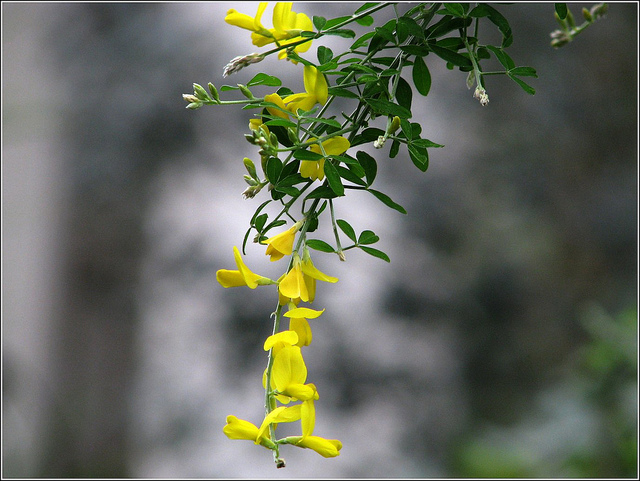Davallia
|
These Ferns, also called Hare's-Foot Ferns, are native to northern Africa, Asia, Malaya, Japan, northern India and Australia. Most of these plants have creeping stems that are covered with silvery white, black or brown fuzzy scales that resemble small paws. They have finely divided fronds that rise directly from the creeping stems and can vary in length from 6 inches to 6 feet. The tropical varieties of this fern need a minimum temperature of 55 degrees, but the Davallias suited for life in a cool greenhouse need a minimum temperature of 45 degrees. They can be grown outside in mild climates.
Pot CultivationThe best soil mixture to use for these plants is equal parts of peat, loam, and leaf mold with sand and crushed charcoal added. They need a humid atmosphere. Repotting should be done in February for the tropical kinds and in March for the cool greenhouse kinds. Shallow pans are good to use for the ferns that grow the trailing stems. They are also great for hanging baskets. Once the plants are established, they don't require annual repotting, rather, work into the dirt, in between the stems, a little fresh soil. Davallias need a lot of water during their growing season, but from October to February, very little is needed. PropagationThis is accomplished through division of the roots at potting time. The divided sections are pegged down on the surface of the soil until a good amount of roots have formed. They can then be potted. During the spring and summer, spores may also be planted. They are sprinkled on top of pots of finely sifted compost, which are then placed into saucers of water and covered with glass. The little ferns are pricked out and planted one inch apart in shallow pans and kept in a closed propagating case. Eventually they should be potted in 3-inch pots.
VARIETIES-
|






